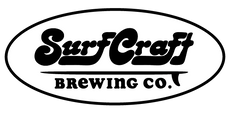
Australian surfboard manufacturer from Sydney's Manly Beach; founder of Keyo Surfboards, and an unheralded leader of the late-'60s shortboard revolution. Denny Keogh was born (1937) in Dulwich Hill, Sydney, raised in Manly, began surfing at age eight. As a teenager he worked summers as a Manly Beach lifeguard, then wintered in the Australian Outback where he worked as a wool classer.
A hobbyist shaper for two or three years, by 1960 Keogh had enough of a following to open the Keyo Surfboards factory and retail shop in the north Sydney suburb of Brookvale—a neighborhood that quickly became the country's boardmaking hub. Midget Farrelly, winner of the 1962 Makaha International, was the first surfboard shaper Keogh brought in to help with the workload; in 1964, Keogh shaped the board that Farrelly rode to victory in the first World Surfing Championships, held at Manly. That year, Keyo Surfboards also produced the Midget Farrelly Competition skateboard.
In 1967, Keogh hired Queensland-born surfer-shaper Bob McTavish, and the following month McTavish shaped the first vee-bottom—a wide-backed nine-footer that kicked off the shortboard revolution. For a short but crucial period, the McTavish-designed Keyo Plastic Machine vee-bottom model was selling at a rate of 70 a week—an astonishing number for the time. "1967," as surf writer Derek Hynd later noted, "belonged to Keyo. Shocks rumbled around the surfing world with the ground he [and McTavish] broke." By early 1968, boardmakers around the world were copying the Keyo-McTavish vee-bottom design.
Later that year, Keyo followed up with the Nat Young Tracker model. Around that time, the Keyo factory was gutted by fire, but the business was up and running within a week or so, from an unburned area at the back of the premises. In 1970, Keyo was again pushing the design edge, with a small, wide, egg-railed design of a type used by most Australian competitors in that year's World Championships. Unfortunately, the boards performed well only in limited conditions—small, peaky waves, for the most part—and the design was shelved.
Apart from Farrelly, Keyo Surfboards shapers over the years included Neil Purchase, Kevin Platt, Geoff McCoy, Dick van Straalen, and Peter Cornish. Teamriders included Ted Spencer, Col Smith, and Baddy Treloar.
Keogh became the Australian and New Zealand licensee builder for Hobie Cat catamarans in 1972, and Keyo Surfboards folded four years later. In 1995, Sydney shaper John Gill married Vanessa Keogh, one of Denny Keyo's five daughters, and soon thereafter revived the Keyo Surfboards brand.
